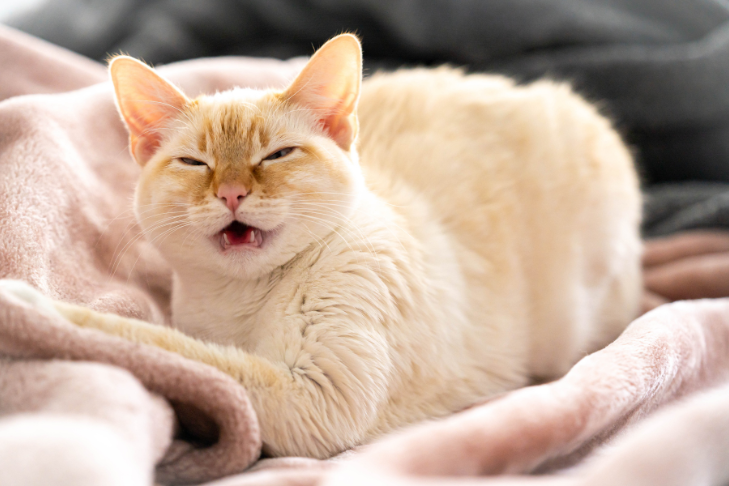Why Is My Cat Sneezing?

If your cat has suddenly started sneezing more than usual, it’s natural to wonder what’s causing it. Just like people, cats sneeze for many harmless reasons, like dust, pollen, or even excitement. Occasional sneezing is typically nothing to worry about, but if it becomes frequent or persistent, it could be a sign that something in your cat’s environment needs adjusting.
Understanding what might be behind your cat’s sneezing can help you make simple changes that keep them comfortable and breathing easy.
1. Environmental Irritants
One of the most common causes of sneezing in cats is exposure to irritants in their surroundings. Everyday items like dust, candles, cleaning products, perfume, or cigarette smoke can all bother your cat’s sensitive nose.
Cats spend a lot of time grooming, sleeping, and playing close to the ground, so they’re often more exposed to dust and allergens than we realize. Try switching to fragrance-free cleaning products, using unscented litter, and vacuuming regularly to help minimize potential triggers.
If you’ve recently deep-cleaned, painted, or used air fresheners, keep your cat in another room until the scent has faded.
2. Seasonal Allergies
Cats can be sensitive to changes in the environment, especially during spring and fall when pollen levels are higher. Sneezing caused by seasonal shifts may come and go, often accompanied by mild watery eyes or increased grooming.
Keeping windows closed during high-pollen days, changing air filters regularly, and wiping your cat’s fur or paws after outdoor exposure (especially for adventurous cats who spend time on patios or in gardens) can all help limit irritants that make their way inside.
3. Litter Box Dust
If you’ve noticed your cat sneezing most often around their litter box, the culprit might be the litter itself. Some clay-based or scented litters create a fine dust that can irritate a cat’s nose and throat.
Switching to a low-dust, fragrance-free litter can make a big difference. It’s also helpful to clean the box daily and ensure it’s in a well-ventilated area. Cats are sensitive to scent and texture, so small changes in litter type can have a big impact on their comfort.
4. Rapid Temperature Changes
Cats’ respiratory systems can react to quick temperature shifts, especially moving between warm indoor air and cooler outdoor drafts. If your home’s air conditioning or heating runs frequently, consider using a humidifier to maintain consistent moisture levels in the air.
Dry air can sometimes make sneezing more frequent, particularly in colder months when indoor heating is on full blast. Creating a cozy, draft-free resting area can help your cat feel more comfortable.
5. Playful or Excitement Sneezing
Believe it or not, some cats sneeze when they get overly excited, especially during active playtime or bursts of energy (the classic “zoomies”). This kind of sneezing is usually harmless and short-lived.
If your cat sneezes occasionally while playing but otherwise seems healthy, alert, and comfortable, there’s likely no reason to worry.

When to Contact Your Veterinarian
While occasional sneezing is usually harmless, there are times when it’s best to call your vet. Persistent sneezing (especially when accompanied by nasal discharge, lethargy, loss of appetite, or watery eyes) can indicate an underlying issue that needs professional attention.
Your veterinarian can help determine the cause and recommend the best next steps for your cat’s specific needs.
Improving Your Cat’s Comfort and Overall Wellness
Most of the time, sneezing in cats is simply a response to something in their surroundings. By keeping your home environment clean, using unscented products, and maintaining consistent air quality, you can help your cat breathe easier and stay comfortable.
Small, mindful changes like switching to low-dust litter, vacuuming regularly, and minimizing strong scents can go a long way in supporting your cat’s overall wellness.
Even though the occasional sneeze is normal, paying attention to patterns and triggers can help you create the healthiest possible space for your feline friend.


